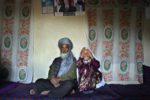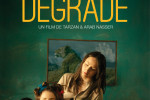In recent years, there has been a flood of talent shows in the Arab world, with tens of thousands of young (and sometimes old) people showing their talents in different fields. These shows are Arabic editions of international shows that have witnessed continuous success among a universal audience. There are shows for singers, such as Arab Idol, X-Factor and The Voice. There are also shows for different kinds of talents, such as Arabs Got Talent. There are even shows designed especially for scientists, such as the Star of Science. This phenomenon was first brought into the Arab world through Lebanese television networks, such as Future TV and LBC. Later, and due to the powerful Saudi media networks such as MBC and Rotana, these programs were broadcast for a larger Arab audience, featuring young men and women from different Arab countries, and sometimes reaching out to Arabic speakers in the rest of the world. (We have seen how American Jennifer Grout reached the finale of Arabs Got Talent because of her talent in singing in Arabic.)
Despite the fact that Saudi networks have been the main players in the phenomenon, there have been some humble attempts by smaller TV channels to introduce the same concept of talent shows, but in a different setting. The most recent and probably noticeable attempt was by the Palestinian channel Al Kitab in Gaza, which will feature the finale of its talent show Najm Al Kitab this Thursday.
Najm Al Kitab is not different from any other talent show we have seen before. The show invites young people from Gaza to audition in front of three judges, and whoever is chosen goes on to the next stage of competition. Winners in later stages are decided by the voting audience, using short mobile messages, or by simply calling a designated number in different countries.
Songs picked by participants should be either patriotic Palestinian or Islamic songs; there were a few attempts by some participants to sing romantic songs, but they were rejected. There are three judges who decide on the performances. One is a poet and a specialist in the art of speech. The second is a protocol specialist, and the third is a music composer.
We might be reading these lines, and thinking: what is the problem here? Everything seems fine. A bunch of young people showing their talents is a great idea, and might discover new talents, which will help enrich the quality of arts and culture in these societies. But, the main issue here is that there is not a single female in the whole show.
For those of you who do not know Al Kitab channel, it is a Palestinian, cultural and social channel targeting Palestinians wherever they are. The main mission of Al Kitab is to launch a social renaissance on all levels, and enrich the cultural and human aspects in the Palestinian society, while focusing at the same time on the historical roots of the Palestinian conflict so that it stays alive in the hearts of Arabs and Muslims, according to its Wikipedia page.
Due to the conservative nature of Gaza society, some might claim that a woman’s voice is “awrah” (a term used to describe parts of men’s and women’s bodies that should not be exposed; some argue that this also includes women’s voices) and cannot be heard by strangers. I think if that’s the case, the channel should at least make that clear within the guidelines of the show, which mentions nothing regarding that. Women are also excluded from being part of the judging committee. And the bigger problem is that there is not a single woman working in the show itself. So one might ask: does Gaza lack women who are able to prove themselves in this field? Or is it just some sort of an automatic exclusion of women due to the nature of the society?
In her article “Islamization in Gaza Erodes Women’s Rights,” Asmaa Al Ghoul writes:
“The regression of the situation of women in the Gaza Strip is not only obvious to female activists, but it is also clear from the figures of the Palestinian Central Bureau of Statistics for 2011. A total of 15% of families with a female majority suffer from extreme poverty in the Palestinian lands, with a rate of 20.6% in the Gaza Strip and 12.5% in the West Bank. In 2011, the unemployment rate among women reached 28.4% in the Palestinian lands compared to 13.8% in 2001. The highest and lowest rates of violence were reported in the Gaza Strip and Rafah district, south of the strip, and were respectively 58.1% and 23.1%.”
She adds:
“Director of the Women’s Affairs Technical Committee, Nadia Abou Nahla, mentioned in a meeting with Al-Monitor, held at the committee’s headquarters that “the statistics of the Palestinian system show a slow but clear increase in the participation of Palestinian women in the overall workforce. The numbers show a rise from a maximum of 12% in 2006 to 16% in 2011, as opposed to over 85% male participation. It is noteworthy that Palestinian society has the highest rates of female graduates and higher education in the Arab world. However, these rates contradict those showing the presence of women in the workforce, which can be attributed to the traditional mindset of Palestinian society regarding women and their role.”
In some conservative societies, women are not misrepresented; they are rather not represented at all. This will lead to false implications and conclusions about their role in society, as well as failing them in achieving their equal rights and voices. Women disappearing from the public scene, especially in media platforms, will become the norm, and future generations will not find it normal for women to even work or appear in public places.
Going back to the Najm Al Kitab show, I think such decisions of excluding women are unfair to an important part of society. Programs like this one should take the initiative to employ women, so that members of society can take the same steps and allow their daughters to appear on TV, hence making it look normal over time. It will definitely take time given that it is a traditional and conservative society.
Gaza has so many powerful female talents who can reflect on the Palestinian struggle using their talents. This wonderful video illustrates a few of them.




